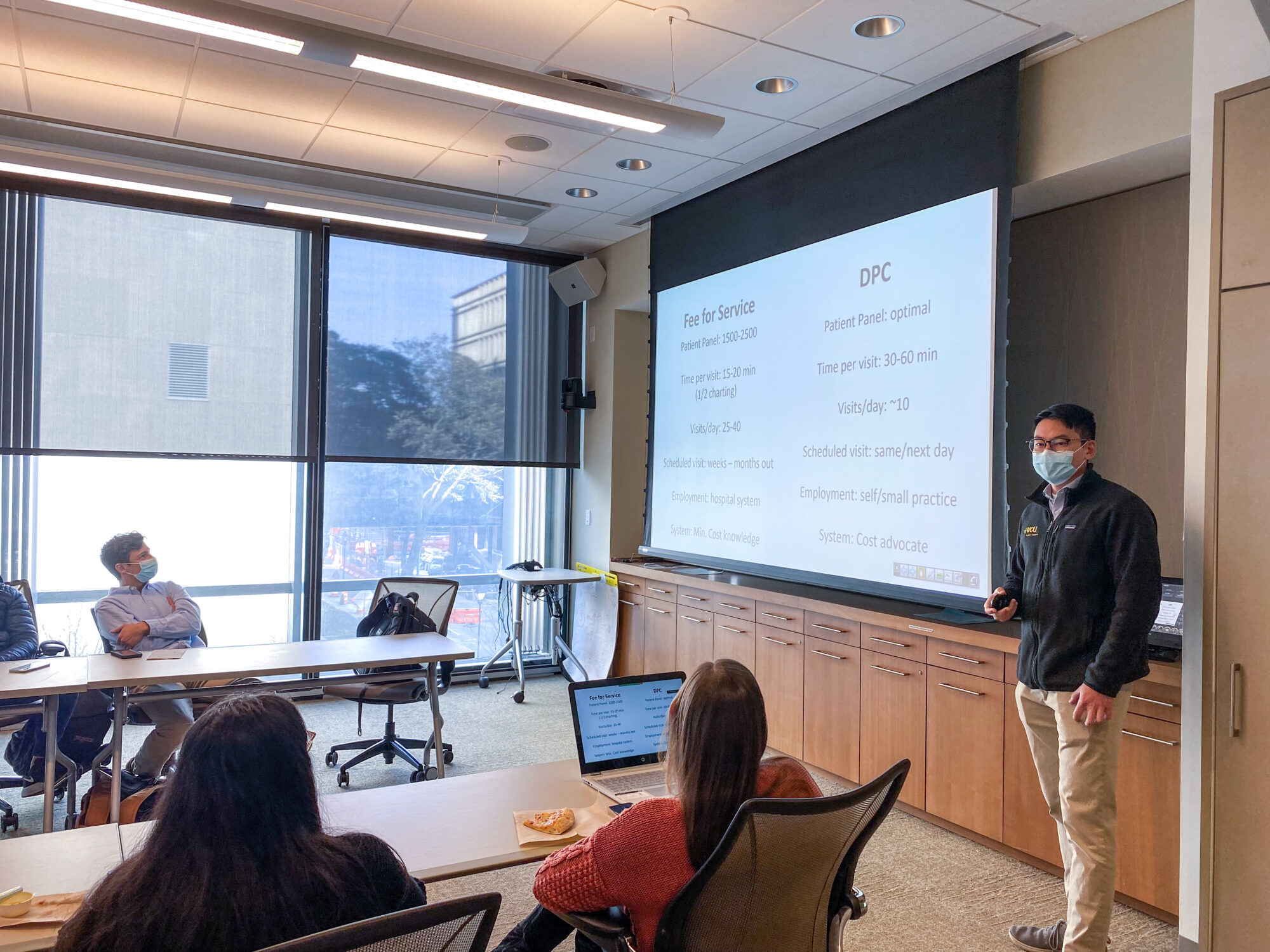

Ever since I learned about DPC back in 2017, I’ve made a mission to teach as many people about it as possible. Throughout residency, I advocated strongly for more involvement with resident and medical student (RaMS) education all while doing what I could to engage local schools and residencies to include DPC education. I’ve learned some lessons during the last 5 years which I will share in this post, but first an announcement. Dr. Vance Lassey, the current president of the DPC Alliance, has announced building up the RaMS section of the Alliance as his top priority and has asked me to take the lead on this project. I know there are many DPC docs who have and are currently engaging RaMS in their local communities. One goal we have is to build a separate education section, so if you have any slides or other educational material you’d be willing to share, I would be very grateful. Feel free to email me at [email protected].
MEDICAL STUDENTS
During residency, I had a presentation that I used for every DPC presentation I was invited to give. At the time I made it, I had only known about DPC for about a year or so and was deep into learning the space. The presentation involved a brief explanation of the traditional model before diving into what DPC is and why it’s better. As expected, there were a good number of questions, but I also picked up on some confusion. Only recently did I figure out what I did wrong. Most medical students don’t have much if any exposure to the business side of medicine. Pre clinical they only read books and in clinicals they are swamped trying to impress their attendings while cramming medical information in their free time. So for my most recent talk last week, I took a few steps back and did more of an exploration of how FFS works before going into DPC. Most lectures have an hour allotted and covering both FFS and DPC is challenging, but even a brief exploration of the two models reveals the big difference in physician standard of life and patient standard of care. The key in medical student education is to spend more time than you think you explaining the basics of FFS because only then will DPC really shine. Usually, students will find the intro topic pretty interesting and there’s always room to be invited back to continue into a deeper dive.
RESIDENTS
Residency is interesting because of how different each of the three years is (for the 3 year FM and IM programs). Most of year 1 the intern is just trying to survive and is just learning the wonders of FFS (sarcasm). Year 2 is transition to senior resident while having a vague sense of impending decision making as the back half of residency starts. Year 3 most residents have decided on what they want to do by the end of winter. Each year has its own challenges and the residents have their own concerns which is why DPC in residencies should be part of a longitudinal curriculum. I was lucky to attend a residency where we learned about the business of primary care all three years and included DPC in the curriculum. While periodic lectures at residencies are better than nothing, longitudinal engagement is even better. Almost all programs have someone in charge of lectures and someone for the business rotation. Finding and developing relationships with these individuals is key to getting effective DPC education into the program.
Educating the next generation of doctors will be key to not just growing DPC, but also for solving the primary care crisis our country has. Efforts by practicing DPC docs up to now have been bearing fruit. When I was in med school no one had even heard of DPC and now I have first-year med students telling me how they want to do DPC when they become attendings. As long as we continue educating, the snowball will continue growing.